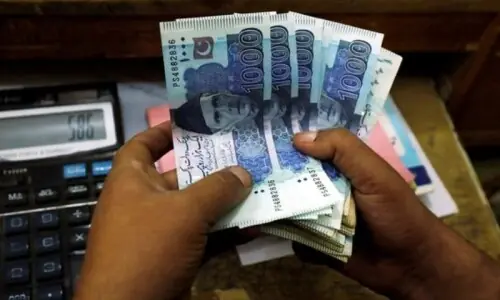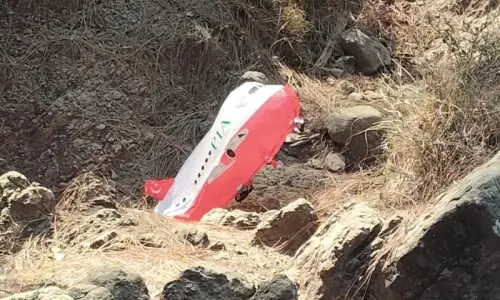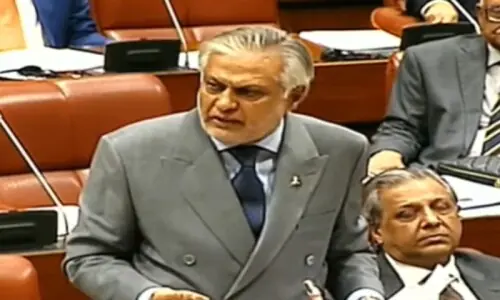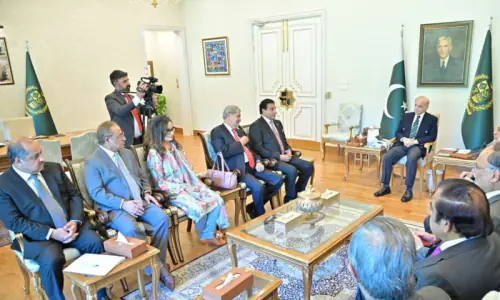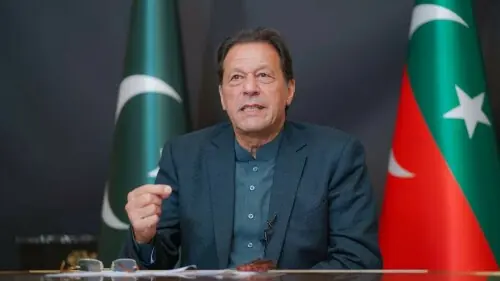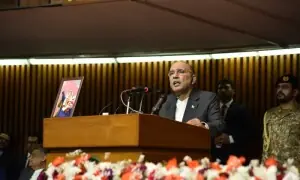WASHINGTON: The United States and Pakistan have a shared interest in working together in Afghanistan, National Security Adviser Moeed Yusuf said in a phone interview with The Washington Post on Thursday. But the NSA pointed out that cooperation would require fixing the bilateral relationship by “moving past problems”.
“Afghan instability could lead to more terrorism, refugees and economic hardship for Pakistan,” Moeed Yusuf said while speaking with Josh Rogin, who worked the interview into an opinion piece which appeared in the newspaper under the headline, “Pakistan wants to be treated like an ally, not a scapegoat”.
Columnist Rogin said it was unfortunate that instead of addressing Pakistan’s reservations, the country was being indicted by American media for its alleged support to Taliban over the years. He suggested Washington to “seriously consider Pakistan’s offer of cooperation”.
“Right now, in the situation we are in, how are US and Pakistan’s interests not aligned,” Moeed Yusuf said in reply to a question.
“I’m not asking for any sympathy for Pakistan,” the NSA said. “I’m thinking in terms of pure US selfish national interests. How does it help to push away a country of this size, stature and power,” he wondered.
Josh Rogin noted that Pakistan stands perennially accused of providing safe haven for the Taliban, but on the other hand officials in Islamabad point out that Pakistan had lost soldiers, as well as thousands of non-combatants, at the hands of extremists since 9/11.
“Pakistan is the victim. We had nothing to do with 9/11. We teamed up with the US to fight back and after that there was a major backlash on Pakistan,” Moeed Yusuf recalled.
“But let all that pass. We need to work out how to move forward as partners because neither side can do without the other in terms of stability in the region.”
The US-supported government of president Ashraf Ghani in Kabul, he added, used Pakistan as a scapegoat for its own ineptitude, corruption and unpopularity.
Pakistan helped bring the Taliban to the negotiating table at Washington’s request, got blocked out of the negotiations and was now being blamed for the outcome, the NSA pointed out. “Did Pakistan tell the Afghan National Army not to fight? Did Pakistan tell Ashraf Ghani to run away?”
Moeed Yusuf said it was obvious the western media had been misreporting the situation in Afghanistan for a long time. Otherwise, he observed, the collapse of the entire state structure within a week was mystifying.
“So somebody was lying, somebody was misreporting, or somebody was mistaken about the reality when it came to informing the taxpayers of the Western world.”
Recalling a government statement of last week about the Taliban takeover of Kabul, the Washington Post columnist said it “becomes apparent there is actually significant overlap with the Biden administration’s policy goals”.
Pakistan, he wrote, is calling upon the Taliban to work with other ethnic groups for a political settlement that would lead to the formation of an inclusive government in Kabul. Pakistan has urged the Taliban to respect international law and human rights, Josh Rogin said. “Islamabad agrees with President Joe Biden that withdrawing all US troops is the right decision.”
Pakistan wants the United States to find a way to engage diplomatically with the Taliban, Rogin said, referring to the Pakistani statement. On his part, Moeed Yusuf said Washington should not isolate Afghanistan to punish its new rulers.
“Now that the Taliban have the whole country, they don’t really need Islamabad as much anymore,” he said. “Assistance and recognition are the leverage. Who has that? The Western countries have much more leverage in Afghanistan than Pakistan has.”
Moeed Yusuf emphasised that the international community must support Afghanistan to avoid a humanitarian crisis in the region.
In an interview to BBC Radio on the situation in Afghanistan, the NSA said Pakistan had so far helped evacuate more than 7,000 people from Kabul and was issuing visas on arrival to those coming through the land route.
Dr Moeed underlined that it was wrong to blame Pakistan for the situation in Afghanistan as it was itself badly affected by the turmoil.
The NSA said if the international community left Afghanistan to fend for itself, a “catastrophe is impending”.
Published in Dawn, August 27th, 2021














